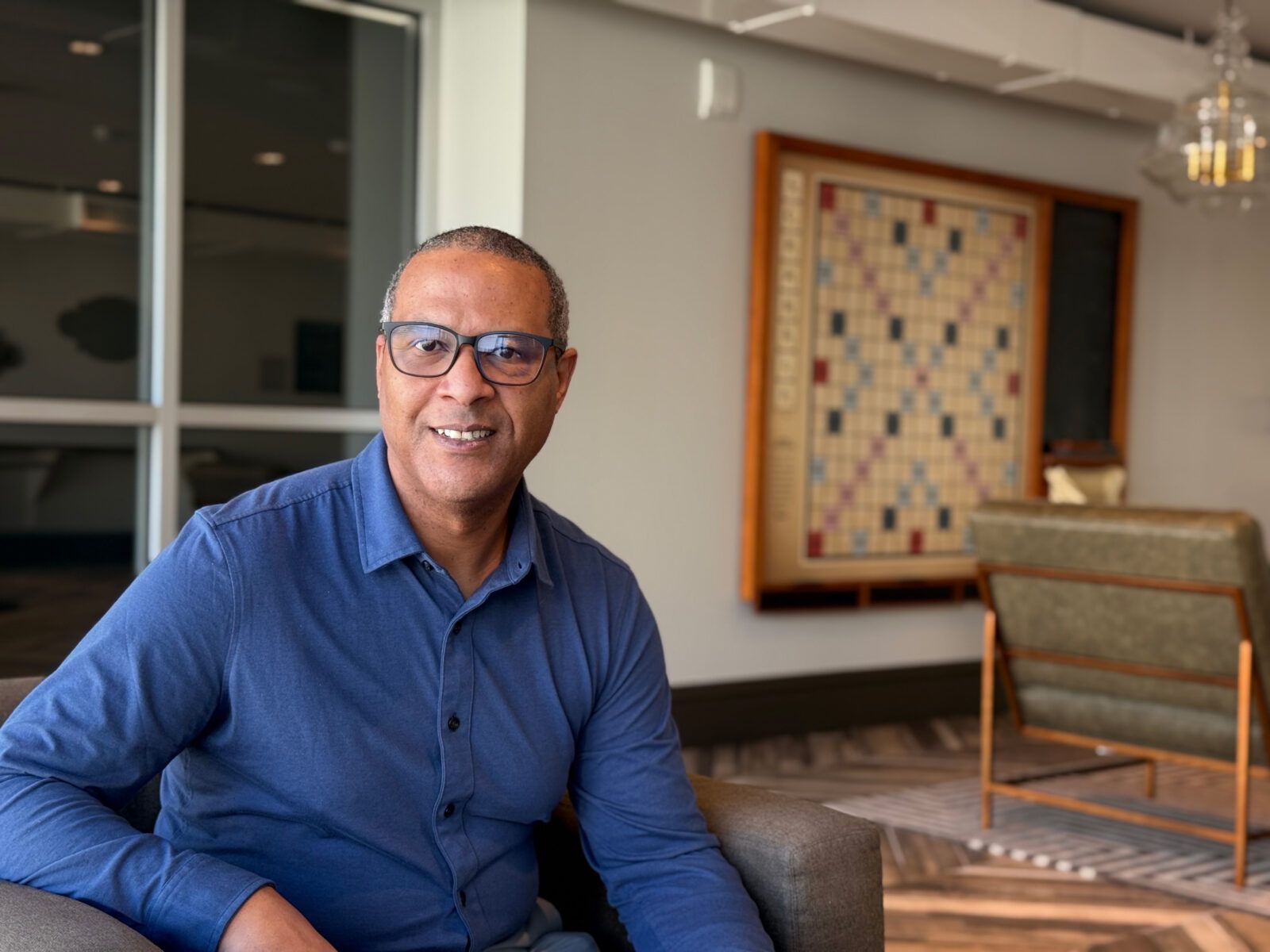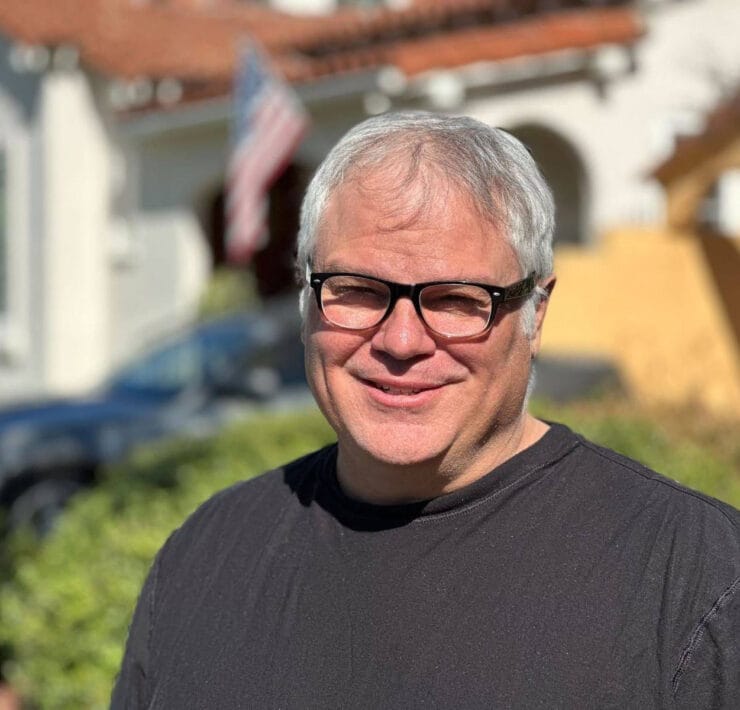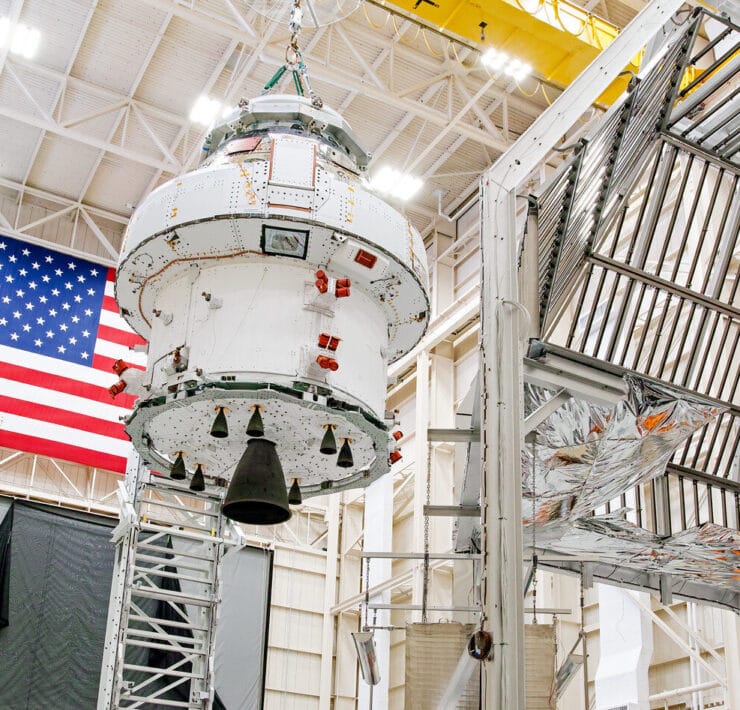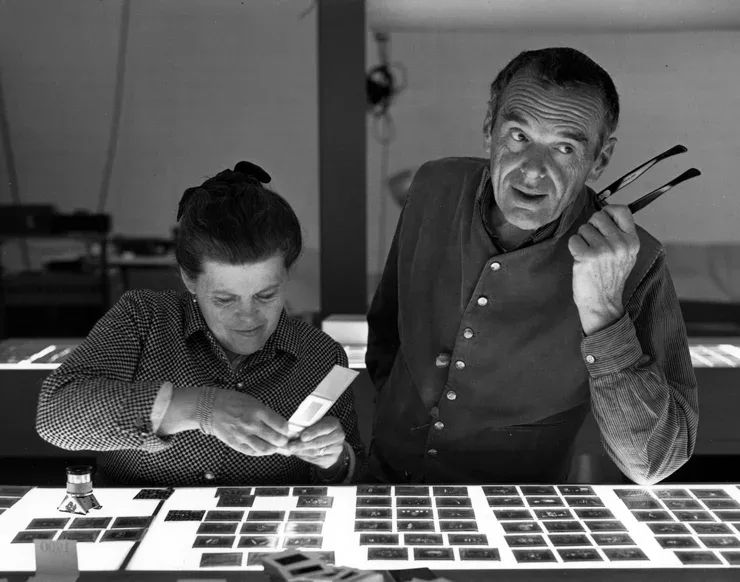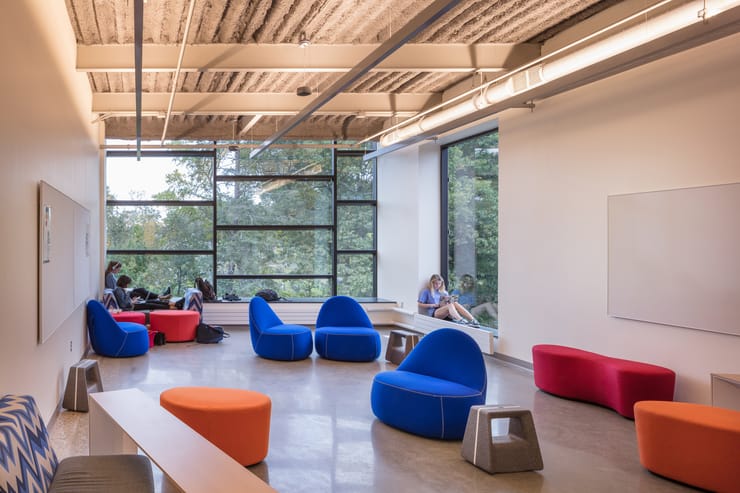Amid the calm and charm of the San Fernando Valley lives Andre Kibbe, a dedicated lighting sales consultant at Alcon Lighting. His journey began in Pasadena, where he spent his early years surrounded by family and childhood memories. These roots instilled in him a sense of belonging, and his love for Southern California remains strong today.
Andre’s journey into sales began nearly ten years ago, on a day that would mark a significant turning point in his career. He stepped into Alcon Lighting on February 9, 2015 to interview for an ecommerce sales position, filled with excitement and anxiety. His first taste of success came within a few months—but it wasn’t the monetary value of the sale that resonated; instead, it was overwhelming relief and a newfound confidence that washed over him. A $30,000 order seemed monumental at the time, a beacon of hope amidst a period of self-doubt. He recalls how that moment transformed his anxiety into motivation and determination. Through each interaction, he learned the importance of building trust, believing that effective salesmanship is rooted in genuine connection. He discovered that being responsive and authentic not only eased his self-doubt but also nurtured trust with his clients.
Andre was recently interviewed near his home in Woodland Hills, where he talked about his childhood and his motivation and drive to excel in the lighting industry.
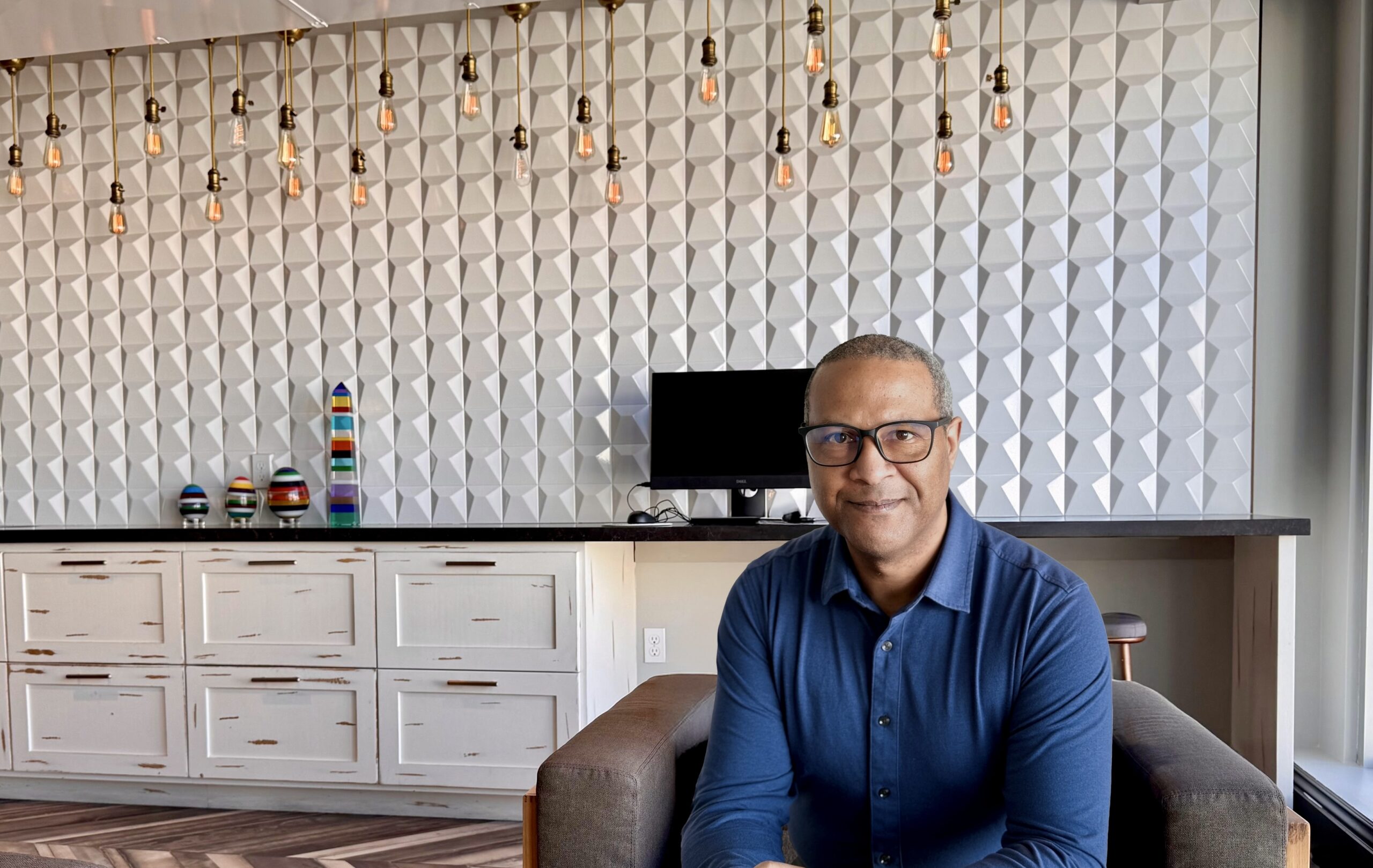
Question: Where do you call home?
Andre Kibbe: I live in Woodland Hills, though I’ve lived in Southern California most of my life. The first house where I lived was in Pasadena, and my earliest memories are in Pasadena. Then [my family] moved to Altadena, and I lived there until I moved out at 18.
As an adult, I lived in the heart of Pasadena—right off Colorado. My fiancée lived in Woodland Hills, and I used to commute. When we got married, I moved back to Woodland Hills.
Question: Do you like living in the San Fernando Valley?
Andre: Yeah, it’s pleasant. I mainly moved here to join my wife. It’s quiet. It’s calm and there are nice restaurants, theaters—nice amenities. There’s the Village, and there’s Topanga Plaza. We probably go there weekly.
Question: Do you recall your first lighting sales consultant experience?
Andre: My first sale probably came within a week or two of being here. My first day at Alcon Lighting—if I remember correctly—was on February 9th, 2015. The first big sale was a $30,000 order, which was probably three or four months into the job. That was exciting. Within my first year, I had my biggest single sale ever, which was like $330,000.
Question: What do you remember about your first sale?
Andre: It was more relief than anything. I was completely new to sales, except for retail jobs where you’re just transacting, not really selling anything. There was a lot of following up with inbound sales calls and anxiety of wondering if this would work. I was unsure of myself. I would get nervous every time I’d pick up the phone. And that took a while to get past—hundreds of hours of constant selling, which requires a mindset you have to cultivate.
When I got that first sale, I was like, “Oh, okay—this can happen. This actually works…” You keep calling and calling and calling, and you’re not getting anything. Then, all of a sudden, it’s like you get a sale, and it feels like all the effort pays off. That felt good. I remember feeling relieved—like, “I can do this—” and also just useful.
Selling lights to people—things that people need—being able to specify something exact—the number of lights, the color temperature, the technical aspects—and being able to provide people with information and follow through with that, that’s satisfying.
Question: Do you remember details about the $330,000 sale?
Andre: I do. That order was for an engineering firm whose client had townhomes that needed lighting. It would have been a structural engineering company.
That was a sale that came from an inbound call. Most of our leads are inbound. So I do a lot of follow-up. You never know what’s gonna happen when you pick up the phone. Sometimes it’s just an order. Other times, it’s people investigating.
Question: Which type of lights did the customer want?
Andre: Linear pendant fixtures. Those are our most popular lighting products. It was a whole bunch of them. They had to ship them in tranches of like a few hundred at a time and it was like three or four shipments.

As soon as they mentioned the volume, I knew it would be a high-ticket order. I had a good feeling about it from the beginning. There are certain cues where I can tell what phase the person’s project is in—whether it’s an informational call or someone who has an intent to buy. I don’t remember the exact details. I just knew that this was something imminent.
I have a pending sale right now that I think is like $380,000 from a pretty big company—a satellite dish company—which probably will order in the next few months. I stay centered, answer one question at a time and hope for the best.
Question: What do you think sealed the deal in terms of your effort on that call?
Andre: Credibility flows both ways. When you pick up and talk to a prospective customer, you can sense whether they’re serious. And I think the opposite is true—they have a sense of whether I’m being serious by my demeanor, by how rapidly I get back to them—how seriously you take the call. So if a person has an intuition that I am a responsible person, and I’m responsive, and I’m not blowing smoke, then people will [be more amenable].
I try to maintain that level of professionalism with every call because I do take these things seriously. That influences how I speak. I can always tell when someone’s serious. You can tell when someone’s reading a script versus being authentic. People pick up on authenticity.
This, to me, is professionalism. Not someone’s ability to read a script. It’s actually listening—it’s breaking through that shell of prepared talking points and getting to what the person actually wants—really getting into the meat of the conversation as quickly as possible.
Question: How do you deal with a situation where a customer is frustrated or wants to vent?
Andre: I ask for details because, especially in this industry, people can’t always articulate the problem. They’ll [tend to] say [things] like, “Oh, this light doesn’t work.” But they can’t always tell you, for instance, whether it’s flickering. Is the light not coming on when you hit the switch? Or people will use brightness as a proxy for color temperature. Things like that.
It’s my responsibility as a lighting professional to unpack that. And guide them into going back and forth—like the term “looping for understanding” to get a more precise version of the cause of the initial frustration.
Question: How much of your success as a salesperson comes from training and resources you received and how much just you?
Andre: There are two aspects of it. One is the technical aspect. The other is the human element. When I’m talking to people—just doing sales calls—it’s like there’s no getting around putting your reps in the gym. I have to keep talking to people. And eventually, I became less self-conscious.

You start building a mental map of different questions someone can ask, and then you know the array of answers. You have the knowledge, and it’s relatively natural. Whereas, before, when you’re first starting, someone asks a question, and you’re at a loss, which puts you on the defensive and it spirals into anxiety.
There’s a tipping point where you just feel more confident. To this day, I’m stumped by questions. But they’re fewer than ever. I know how to buy time to get the answers I need so I can get back to the person in a quick manner.
Question: How did you learn about Alcon Lighting?
Andre: An advertisement on Craigslist. I actually thought it was going to be an e-commerce job. I thought it would be maintaining the website or something like that.
Within a few days, I realized, “Oh, this is an e-commerce sales job.” I thought about not continuing. But then I thought maybe learning how to sell would be character-building because it could generalize a good life skill—the art of persuasion.
Question: As you near your 10th anniversary, what’s the most consistent customer compliment you’ve received?
Andre: That I’m thorough, professional and responsive. That I get back to people in a timely manner and take people’s inquiries seriously. I do my best to clarify issues, address reservations. I think it’s addressing people’s reservations rather than in overcoming objections, which, to me, sounds like railroading—or steamrolling—over people.
If I’m sensitive to people’s frustrations are, and try to unpack those, then answer in a straightforward way, I can earn respect. Customers end up saying: “Thank you for being so thorough—so professional, so dedicated.”
Question: What’s the nicest compliment you’ve had?
Andre: One customer who keeps coming back is very complimentary. I can’t think of any specific thing that she said. I always err on the side of giving too much information rather than not enough because I know I dislike it when I ask someone a question and get 70 percent of an answer—then I have follow-up. So, I try to make sure that when someone asks me something, I provide a complete answer. I practice the golden rule and try to do unto others as I would want to have them do unto me.
Question: What makes Alcon Lighting different, as a company, from the competition?
Andre: It’s a family business with pride in the culture they’ve built, not just an empty shell, not just an assembly line. It is values-driven. We all look out for each other, and everyone wants everyone else to be the best version of themselves. We’re personally invested in each other.
Question: Is there a type of lighting that you think is underestimated?
Andre: Indirect lighting of all kinds. Indirect lighting is any light that bounces off of a surface rather than beaming at the subject directly. For example, a linear pendant fixture casts light up to the ceiling, and then the light in the room is the ambient light that bounces off the ceiling. And that reduces a lot of glare.

Fifty years ago, when offices didn’t have a lot of computers, it wasn’t an issue. But now, everyone has screens at their desk. Everyone wants to reduce glare. And indirect lighting is the best way to do that. In my opinion, it looks better.
Question: Can you be specific?
Andre: There’s cove lighting—you’ll see this in more and more restaurants and lobbies, where the perimeter is illuminated, but you don’t see the light source—that’s cove lighting. Like where the wall intersects with the ceiling, recessed in the wall is a cove light that shines light up toward the ceiling. So you’re seeing the soft glow around the perimeter of the room.
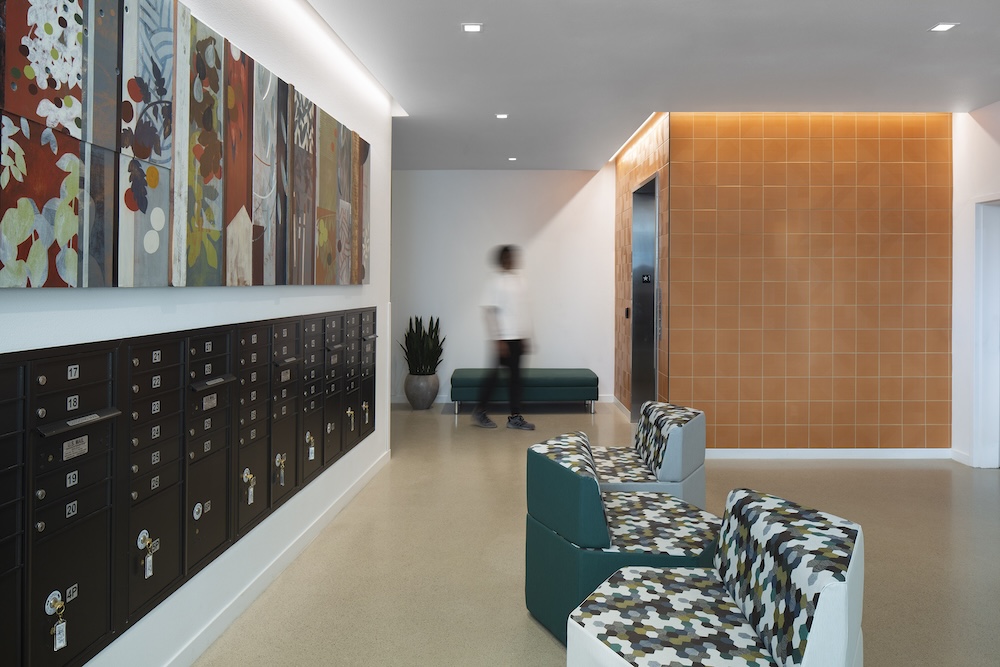

And then also, indirect linear lighting is lighting—where a linear pendant light can either be cast downward, where it’s called downlight, or it can go up and down, which is known as direct-indirect lighting. Or it can go straight up, which is indirect lighting. That’s the least popular.
We don’t get a lot of demand for it but I think that it’s an underutilized resource. I think that a lot of offices would experience either more productivity or have a better work experience if they switched primarily to indirect lighting.
Question: Did your mom’s vocation contribute to the skills that propelled your career advancement?
Andre: Yes, though she worked as a graphic artist for Getty Oil, so her job was also artistic. She’d bring me into certain rooms where I could play with the equipment—there were computers and all this machinery and stuff like that—but I think my only interest in lighting was from being a movie buff and paying attention to cinematography and lighting. I was aware of how things were lit in movies.
Question: What did your dad do?
Andre: He was an automotive mechanic. My dad’s technical. I think the main thing that I took from his work, without being explicitly taught it, is that I can fix my own stuff. I don’t need to necessarily look to someone else to fix a problem I have. I can think through it myself.
When he moved to Texas after I left the nest, I would diagnose everything from mundane things to oil changes—or if there was an electrical problem—by myself. I was able to self-service. My dad was like the equivalent of Zen and the Art of Motorcycle Maintenance, the idea that the things you own, you should learn to master—not fear. It’s a good life lesson.
Question: Did any early work experience shape your approach to your work?
Andre: I did have a tech support job for a company that made mind-mapping software. A mind map is something where people used to do it by hand with a pencil—pen and paper—but you’re brainstorming, you draw a bubble, then you do outward things. So most people now do them by computer. There’s this piece of software called TheBrain—I worked at this software company called TheBrain—and it would be one tech support challenge after another.
Every call was a challenge. I would be thrown into the deep and had to figure out. What I learned from that is that whether I know something or not, I can think through anything. I don’t have to already have answers at my fingertips when I’m being challenged with a problem.
Question: What’s your favorite part of coming to work every day?
Andre: Being able to finalize sales. It’s not about the financial reward, necessarily. It’s a matter of lighting up someone’s work or home. It’s satisfying to have people with abstract problems, which I’m able to break down into concrete solutions and have them act on it. So, it’s very satisfying to finalize a sale—not just talk about it, not hash back and forth about it, but to actually come to a conclusion. Because, to me, the only way I know if the information I’m giving is of value is if someone buys the light.

